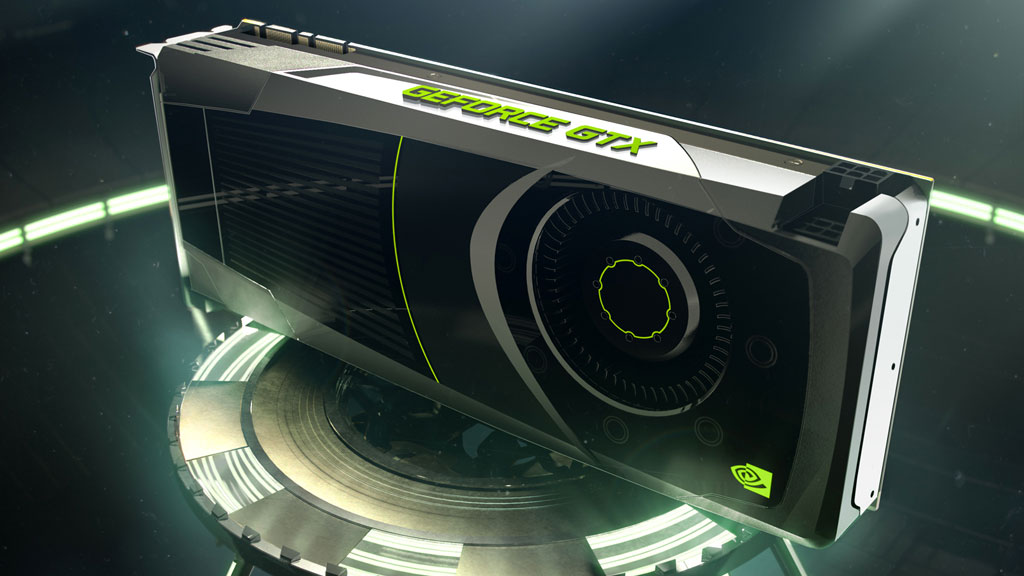It's official, Nvidia will end GeForce GTX 600/700 series support in October
The final 'Game Ready' driver for Kepler GPUs will land on August 31, 2021.

Nvidia is putting owners of Kepler GPUs on notice that effective October of this year, there will be no new 'Game Ready' driver updates, only critical security patches as necessary. This means most GeForce GTX 700 and 600 series cards will not benefit from performance optimizations or gain access to new features, or even receive bug fixes once support comes to an end.
"Kepler-based desktop GPUs initially launched in March of 2012. Since then, gaming technology has evolved dramatically with technologies like DirectX 12 Ultimate and Nvidia DLSS (Deep Learning Super Sampling). Moving forward, Nvidia’s software QA team will be focusing on hardware that supports newer technologies," Nvidia stated in an FAQ on the topic.
The decision affects over two dozen graphics card models. They include:
- GeForce GTX Titan Z
- GeForce GTX Titan Black
- GeForce GTX Titan
- GeForce GTX 780 Ti
- GeForce GTX 780
- GeForce GTX 770
- GeForce GTX 760 Ti
- GeForce GTX 760
- GeForce GTX 760 (192-bit)
- GeForce GTX 760 Ti OEM
- GeForce GT 740
- GeForce GT 730
- GeForce GT 720
- GeForce GT 710
- GeForce GTX 690
- GeForce GTX 680
- GeForce GTX 670
- GeForce GTX 660 Ti
- GeForce GTX 660
- GeForce GTX 650 Ti Boost
- NGeForce GTX 650 Ti
- GeForce GTX 650
- GeForce GTX 645
- GeForce GT 640
- GeForce GT 635
- GeForce GT 630
A few GeForce GTX 700 series cards are noticeably absent from the list. Namely, the GeForce GTX 750 Ti, GeForce GTX 750, and GeForce GTX 745 (OEM). Those parts actually utilized a first-generation Maxwell GPU (specifically the GM107), which succeeded Kepler, and will presumably still be eligible for Game Ready driver updates for a bit longer.

Best CPU for gaming: the top chips from Intel and AMD
Best graphics card: your perfect pixel-pusher awaits
Best SSD for gaming: get into the game ahead of the rest
While some may find this disappointing, it does not come as a surprise, for a couple of reasons. For one, Kepler is almost a decade old at this point, so it has had a good long run. And secondly, Nvidia a few weeks ago had updated a data center document to indicate that the R470 driver would be the end of the road for Kepler.
Curiously, Nvidia later removed the entry, reverting back to listing driver support as "ongoing" for Kepler. This led us to wonder if Nvidia had backtracked, given the current landscape—it's next to impossible to buy a new GPU right now, unless you're willing to pay reseller pricing.
Now we know Nvidia did not change its mind. Instead, the final Game Ready driver for Kepler (R470 GA5) will arrive on August 31, 2021. The first Game Ready driver that doesn't support Kepler (R495 GA1) will be pushed out a few days later, on October 4.
The biggest gaming news, reviews and hardware deals
Keep up to date with the most important stories and the best deals, as picked by the PC Gamer team.
The R470 GA5 driver will also be the last one for Windows 7 and Windows 8/8.1. In a separate support document, Nvidia noted that future driver releases would leave those OSes behind, as "the vast majority of our GeForce customers have migrated to Windows 10."
That is close to when Microsoft is expected to release the next generation of Windows, which is unofficially being referred to as Windows 11. Whatever it ends up being called, it seems as though Windows 10's days are numbered—in yet another support document, Microsoft has listed October 14, 2025 as the retirement date for Windows 10.
Paul has been playing PC games and raking his knuckles on computer hardware since the Commodore 64. He does not have any tattoos, but thinks it would be cool to get one that reads LOAD"*",8,1. In his off time, he rides motorcycles and wrestles alligators (only one of those is true).


